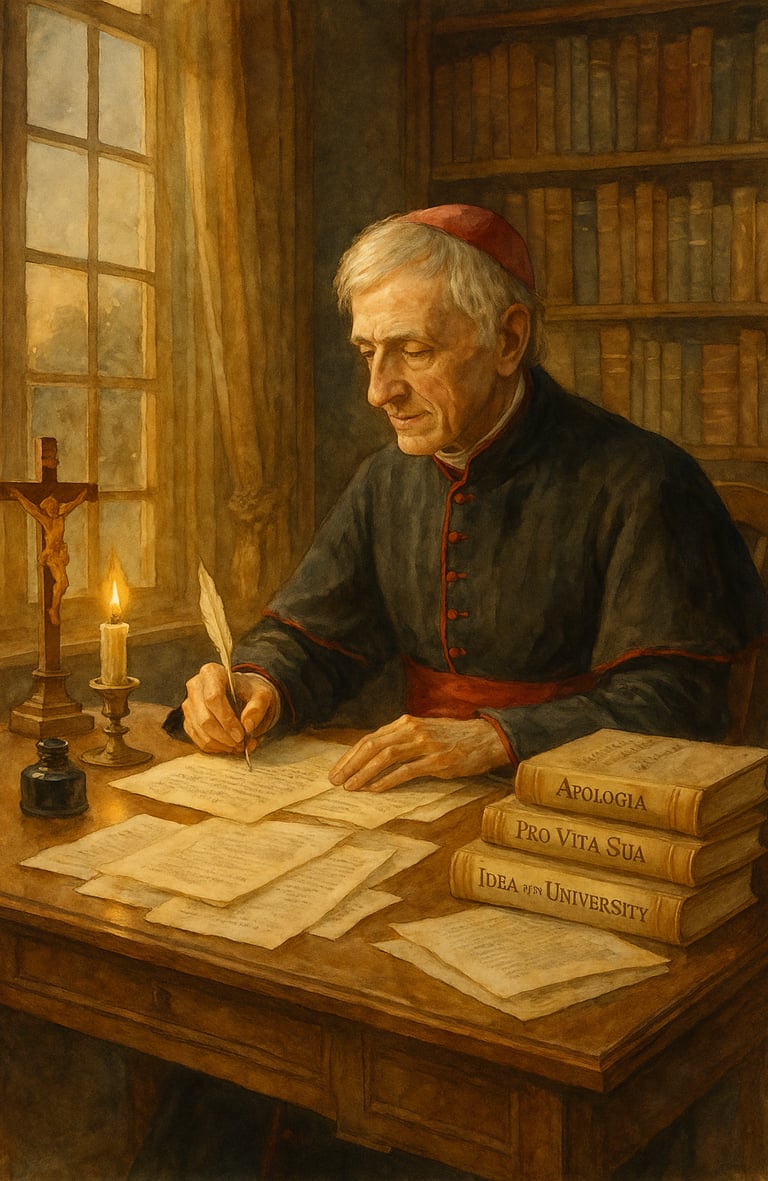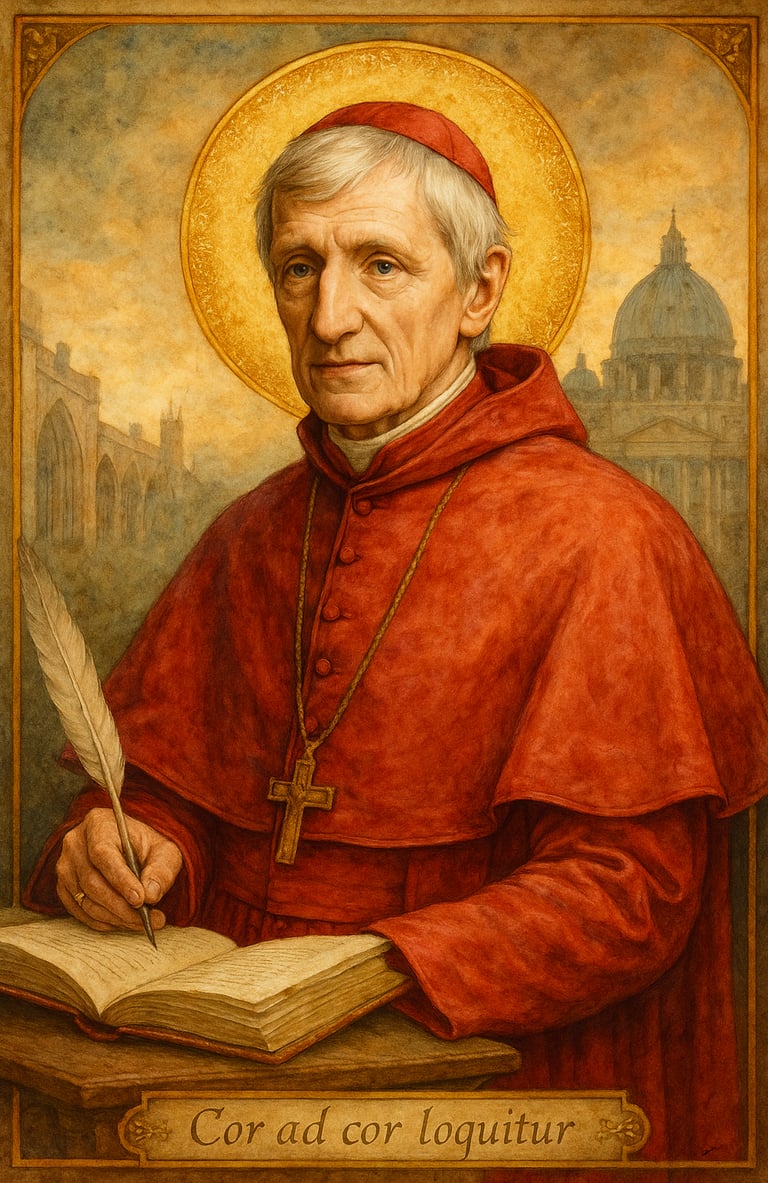Saint John Henry Newman – Heart Speaks to Heart
Feast Day: October 9| Patronage: Converts, students, and Catholic intellectuals
Halo & Light Studios
9/24/20253 min read


Click Link for a reel of Daily Dose of Saints and Faithful Art:
https://youtube.com/shorts/XFApRvz_8us
Fellow Pilgrims in Christ,
Few journeys of faith speak so powerfully to our own age as that of St. John Henry Newman—the Oxford scholar, Anglican priest, and eventual Catholic cardinal whose motto was “Cor ad cor loquitur”—“Heart speaks to heart.” His life was not simply a personal pilgrimage but a signpost for countless others, past and present, who have walked a similar path from the Anglican tradition into the Catholic Church.
To understand Newman’s journey, we must look briefly to the 16th century. For nearly a thousand years, the English Church was part of the Catholic communion, tracing its heritage back to St. Augustine of Canterbury, sent by Pope Gregory the Great in 597. The English Church, or Ecclesia Anglicana, prayed with Rome, believed with Rome, and obeyed the Pope as the successor of St. Peter.
But in 1534, everything changed. King Henry VIII, frustrated by Pope Clement VII’s refusal to grant him an annulment, pushed Parliament to pass the Act of Supremacy, declaring the king the “Supreme Head” of the Church of England. Though Henry retained much Catholic liturgy, the break from Rome was real. Under his son Edward VI, Protestant reforms reshaped doctrine, while Queen Elizabeth I later established a via media—a “middle way”—that preserved bishops, liturgy, and the Book of Common Prayer, but no longer recognized papal authority.
Thus the Anglican Communion was born: a global body with Catholic roots but Protestant branches, holding within it both high-church ritualists and low-church evangelicals. This was the heritage Newman inherited in 1801, and it was precisely in wrestling with these contradictions that he began his search for truth.
The 19th century, Newman’s age, was marked by the Industrial Revolution, the rise of skepticism, and fierce debates between science and religion. The Anglican world was fracturing then, just as it continues to wrestle with divisions today over doctrine and morality. In such uncertainty, Newman stood as a witness that faith and reason are not enemies, and that conscience, rightly formed, leads not away from the Church but into her embrace.
At Oxford, Newman led the Oxford Movement, which sought to revive the ancient faith and practices of the Church Fathers. Yet the deeper he studied, the clearer it became: the faith of the Fathers was not Anglican compromise but Catholic unity.
In 1845, after years of prayer and struggle, he entered the Catholic Church—losing friends, position, and security, yet gaining the fullness of truth.
As a Catholic, Newman founded the Oratory of St. Philip Neri in England, wrote theological masterpieces such as An Essay on the Development of Christian Doctrine, and articulated a vision of education in The Idea of a University. His Apologia Pro Vita Sua—a defense of his life and faith—remains one of the greatest spiritual autobiographies of modern times. In 2019, Pope Francis canonized him, declaring him a saint for our era.
Today, Newman’s witness continues to bear fruit. As modern Anglicans continue to find their home in the Catholic Church, we see the fruits of Newman’s witness: the heart still speaks to the heart, and Christ still calls His sheep into one fold.
In the last decade, several prominent Anglican bishops have entered the Catholic Church, including Richard Pain, former Anglican Bishop of Monmouth, in 2023, and four Church of England bishops between 2021–22. Beyond these leaders, thousands of lay faithful have also been received into the Church through the Personal Ordinariates created by Pope Benedict XVI in 2009.
Many of these converts cite the same reasons that stirred Newman’s heart: a longing for doctrinal clarity, unity with the apostolic tradition, and the sacramental life in its fullness.
Newman’s life shows that fidelity to conscience may cost dearly—but the cost is worth it. His words ring out with hope for our age: “God has created me to do Him some definite service; He has committed some work to me which He has not committed to another.”
St. John Henry Newman, pray for us.


